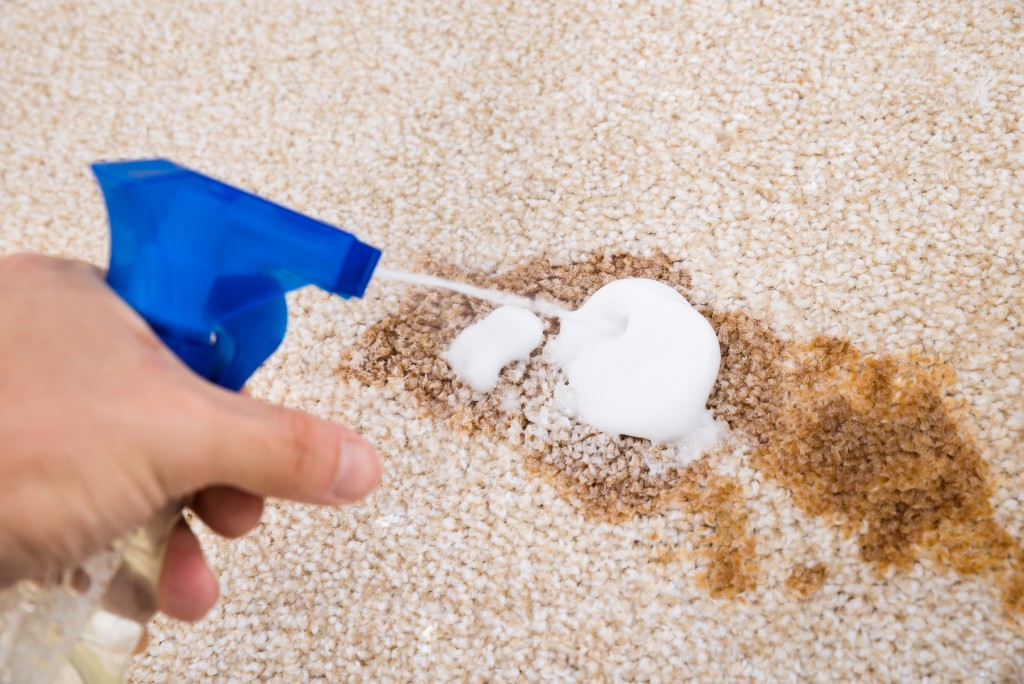• Overexposure to certain household chemicals can lead to skin conditions such as dermatitis, contact dermatitis, urticaria, and rosacea.
• Respiratory issues such as asthma attacks may occur from inhaling toxic substances like cleaning products and air fresheners.
• Vision problems may develop due to exposure to corrosive chemicals like bleach and ammonia.
• Reproductive issues can occur as a result of using products containing phthalates or parabens.
• Brittle nails can be caused by stripping away natural oils from your nails due to chemical exposure.
Many people are unaware of the risks associated with overexposure to household chemicals. From cleaning products to personal care items, there are countless chemicals in homes that can affect your health. In this blog, you will learn about the risks of overexposure to household chemicals and what you can do to protect yourself from them.
Skin Conditions
Overexposure to certain chemicals found in many everyday household products can lead to skin conditions. These reactions can be caused by inhalation or contact with toxic substances such as bleach, laundry detergent, dishwashing liquid, and solvents. Additionally, exposure to fragrant chemicals from air fresheners and scented candles can act as an irritant and aggravate existing skin conditions. Skin conditions you could get from this include the following:
Dermatitis
Dermatitis is a skin condition that is caused by an allergic reaction to products containing harsh chemicals. Symptoms of dermatitis include redness, swelling, itching, and dry patches on the skin.
Contact Dermatitis
This type of eczema is caused by direct contact with certain substances like soaps, detergents, perfumes, and metals. Symptoms of contact dermatitis include redness, itching, and dry patches on the skin.
Urticaria
Also known as hives, urticaria is an allergic reaction that causes red welts to appear on the skin. This type of reaction can be caused by exposure to allergens like dust mites, pollen, or pet dander.
Rosacea
This skin condition is often caused by exposure to hot beverages, alcohol, and certain chemicals. Symptoms of rosacea include redness on the cheeks, nose, chin, and forehead, as well as small bumps or pimples on the face.
By being knowledgeable about the skin conditions that can arise from overexposure to household chemicals, you can take steps to protect yourself and your family from any potential health risks. Be sure to read product labels carefully before using them in your home, and always wear protective gloves when handling any potentially hazardous substances. Additionally, it’s essential to keep the air in your home clean by regularly changing air filters and using an air purifier.
Respiratory Issues

Chemicals used in some cleaning products and air fresheners can cause respiratory issues such as asthma attacks or other breathing difficulties if inhaled over long periods of time. To reduce your exposure, always use ventilation when using any type of chemical product, even those labeled “non-toxic” or “safe for use around children”.
Vision Problems
Many everyday household products contain ingredients that can have an adverse effect on your vision if exposed over long periods of time. These include bleach, ammonia, and other corrosive substances that could damage the delicate membranes in your eyes if not appropriately handled. To prevent this, always wear protective eyewear when working with these types of products.
Reproductive Issues
Exposure to certain chemicals can also cause reproductive issues, particularly in men. These chemicals include phthalates and parabens, often present in cosmetics and other personal care items. To reduce exposure to these chemicals, read labels carefully before purchasing any products and opt for natural alternatives whenever possible.
Brittle Nails

Exposure to common household cleaning chemicals can cause your nails to become brittle and break easily. This is because these chemicals strip away the natural oils from your nails, leaving them dry and prone to breakage. To avoid experiencing brittle nails due to chemical exposure, always wear gloves when cleaning or using any chemical product. If you think it’s too late, don’t worry.
There are plenty of treatment options for brittle nails, such as nail conditioners. Utilizing a nail conditioner helps to strengthen nails and shield them from damage by joining together the corneocyte cells in your nails, resulting in more durable nail plates. A tough nail plate will prevent cosmetic problems such as brittleness, chipping, and peeling.
Awareness of the potential risks associated with overexposure to household chemicals is essential. From skin conditions and respiratory issues to vision problems and brittle nails, there are many ways that these products can harm your health if not handled properly.
By reading product labels carefully before using them in your home and always wearing protective gloves or eyewear when necessary, you can reduce your exposure to potentially hazardous substances. Additionally, opting for natural alternatives whenever possible will help keep you and your family safe from potential health risks. With this knowledge, you’ll be able to make informed decisions about what products should be used to ensure a healthy living environment for everyone involved.




